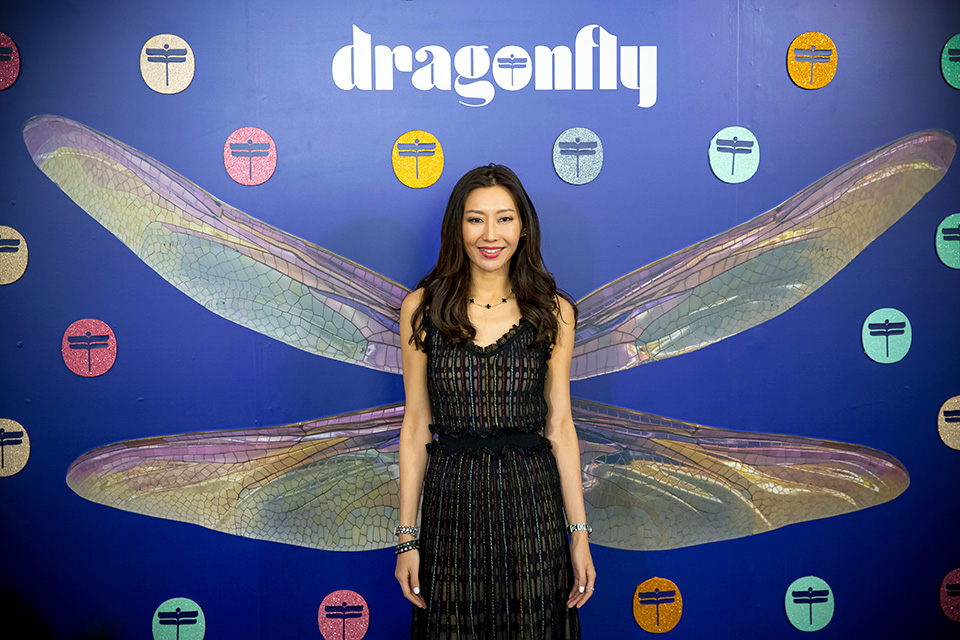Take Five: “It is time for us to redefine the message”
Pranapda (Pam) Phornprapha, founder of the Dragonfly gender equality movement and one of the leading businesswomen of Thailand, talks about why she decided to champion gender equality. In November 2019, UN Women collaborated with Dragonfly on a summit to tackle gender inequality and challenge social norms in South-East Asia.Date:
Author: Aijamal Duishebaeva

Why have you turned your attention to women’s empowerment and gender equality and why is this something that’s important to you personally?
Pam: I grew up in a family that was mostly men. I automatically knew I had to join the boys’ club to have people to play with. I also grew up in a family working in automobile and manufacturing industries, which are very male-dominated spheres. But when you’re younger you don’t notice it because it’s the norm. Growing up I would always be hearing things like “you should be smart but not too smart” and “you should be ambitious but not too ambitious because men don’t like that”. I was conflicted because I wanted to be smart and ambitious, but I thought I needed to also downplay these qualities in order to be attractive. I personally have experienced sexism in the workplace working with Japanese partners, who are not very welcoming to women as decision-makers. This prompted me to do something about this issue. I took a sabbatical and started researching about gender equality and women’s empowerment, and this is how my journey began. I now have a son and a niece and years later I still hear the same sexist remarks being said to the children of this generation, like “girls should be prim and proper” and “boys should be tough and strong.” I realized nothing has changed since I was young, and I decided that we needed to start looking at gender norms and expectations and the general things we consider to be normal through a different lens or another angle. This ultimate desire to alter the status quo was what sparked Dragonfly.
You successfully launched Dragonfly this year with UN Women as a Knowledge Partner. What were your expectations and key take-away messages from the summit?
Pam: The expectation was to create an awakening among the people who attended but also those who were unable to attend, through our social media platform. We wanted to create a buzz and ultimately an event that people would attend and be surprised to learn that issues of gender equality still exist. We wanted to create both a shock factor and an empowerment factor, as well as a desire for action. We are a platform that breeds activists. So if people came to the event and left feeling empowered and with the desire to make a change then it was a success. We connected a lot of people from different communities. We had students, for example, who have the desire to start a Dragonfly club at their school. We had members of the lesbian, gay, bisexual and transgender (LGBT) community approach us to see how we can raise awareness on LGBT issues in younger generations. We had companies approach us to ask how they could better incorporate diversity into their mandate and support non-governmental organizations (NGOs). Bringing all these like-minded people together really sparked a catalyst for change, and for our first event I would consider it a success.
I agree that the event was a great connecting platform. How do you see Dragonfly moving forward?
Pam: We are hoping to be more involved with the private sector. There are so many studies from UN Women and other organizations showing that companies and boards with an equal representation of men and women perform better, as well as being more diverse. This is an angle that we want to pitch to our partners to create more equality in the workplace and to encourage female leadership. The truth is that women tend to leave the workforce after having children, and we want to find a way to have women stay if they want to, whether this be through laws, maternity leave, or other means. We also want to keep the momentum going. We plan to have talks throughout the year and then another event next November, which will be a two-day event and will include a workshop.
Investing in women by women is growing in Asia. We see a lot of people willing to invest their time and influence in women’s empowerment. Do you see Dragonfly as a platform for women philanthropists to come and empower one another?
Pam: For sure – that’s one of our strengths. There are a lot of people doing philanthropy work but the strongest feedback I’ve received is that we are able to make our goals relatable. Our approach is to make the topic more accessible, relatable and real for everyone. We believe that we can inspire women with influence to make a change for other women and girls in need.
What can powerful and influential women like yourself offer towards the goal of gender equality? What actions can they take to help create positive change?
Pam: I think they provide mentorship because women leaders should strive to support other women and create other women leaders. I think the solution isn’t always about giving money; it is also important to support other women to become future leaders.